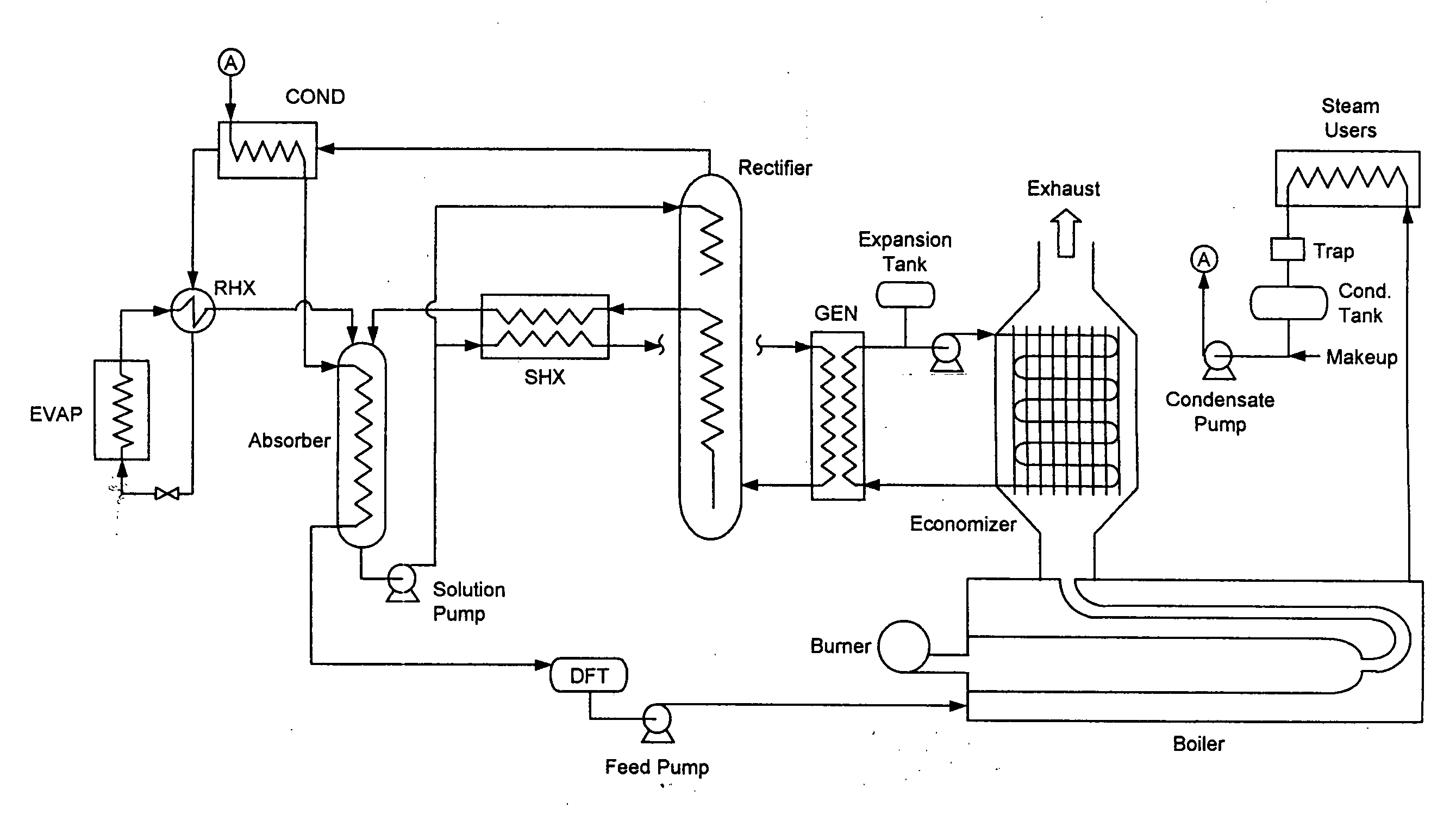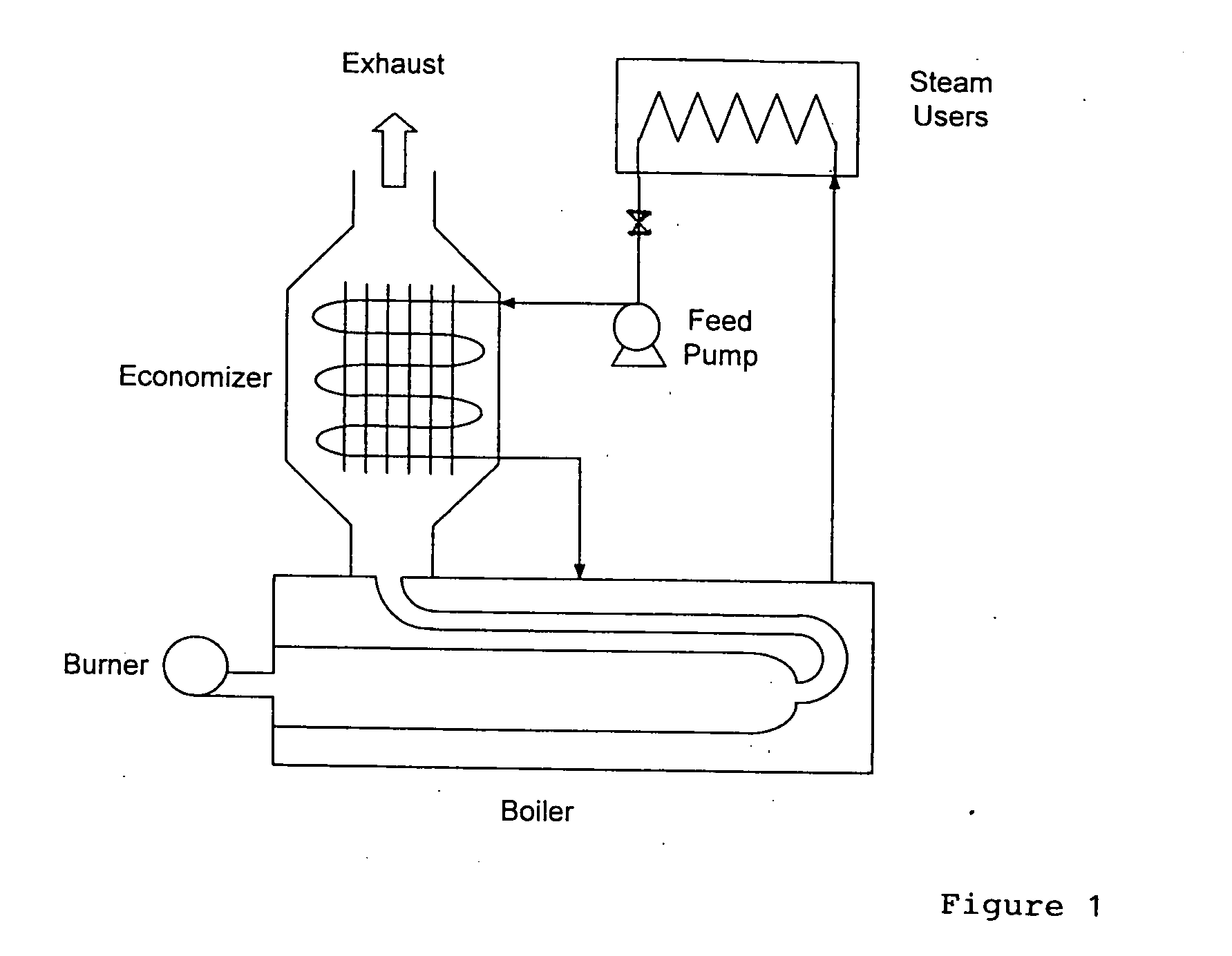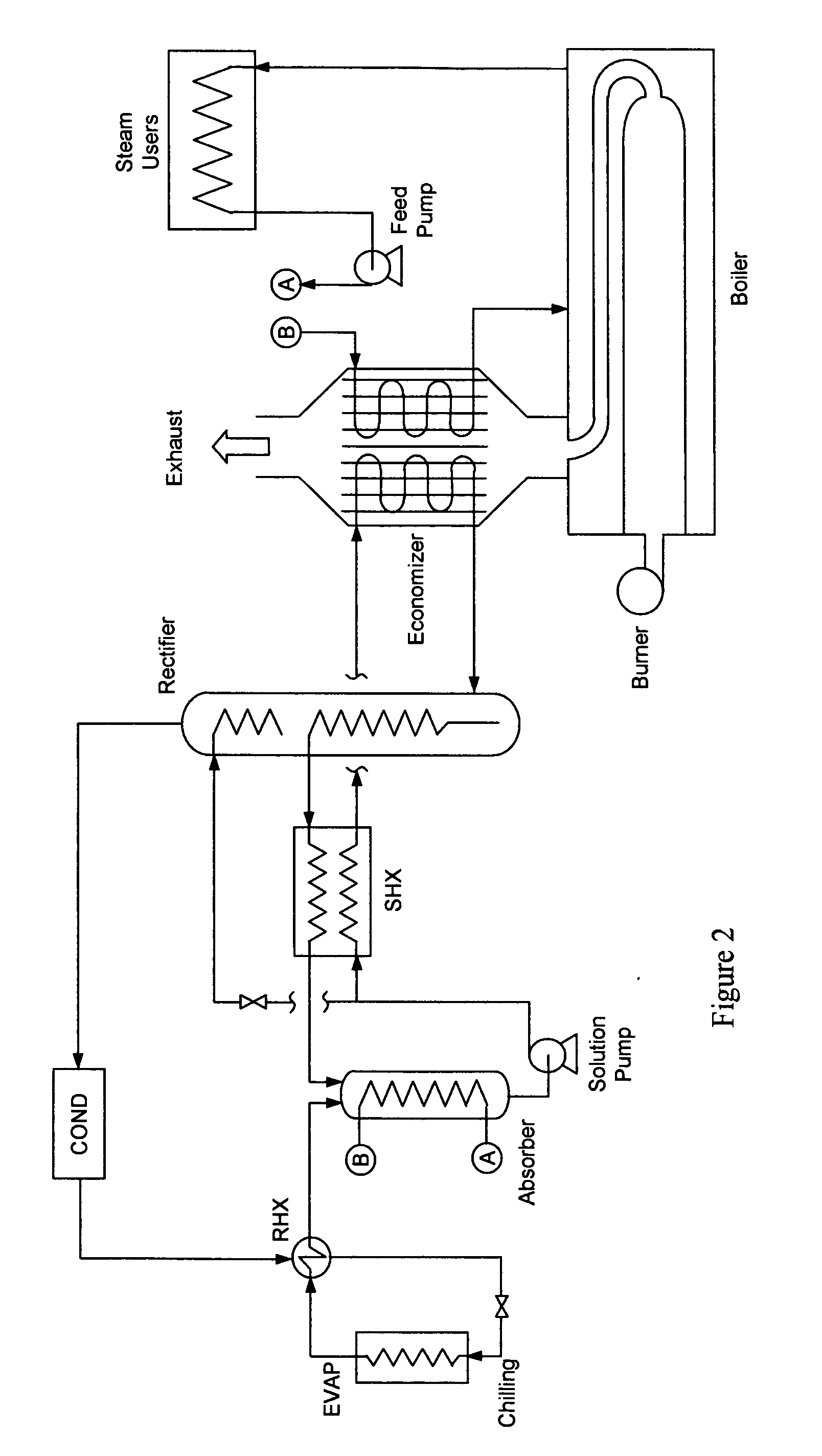Chilling economizer
a technology of economizer and economizer body, which is applied in the direction of refrigerating machines, climate sustainability, sorption machines, etc., can solve the problems of feedwater heating deficit, part of exhaust bypassing economizer, etc., and achieves the effect of reducing aarc heat, avoiding economizer corrosion, and increasing chilling
- Summary
- Abstract
- Description
- Claims
- Application Information
AI Technical Summary
Benefits of technology
Problems solved by technology
Method used
Image
Examples
Embodiment Construction
[0026]It would be possible to mount the HRVG downstream of the economizer, i.e. at its cold end, and just use the final waste heat of the exhaust to make chilling. However that would waste about half of the actual potential of that exhaust to produce chilling. The features desirable to achieve high levels of chilling are: to colocate the HRVG of the AARC with the economizer, such that higher driving temperatures are available to the HRVG; to achieve maximum useful temperature glide in the HRVG by supplying it directly with pumped and preheated solution; to rectify the desorbed solution to higher ammonia purity so as to get more useful chilling from a given amount of desorbed fluid; and to preheat feedwater with absorber reject heat. The latter step has two benefits: more of the exhaust heat becomes available to the HRVG; and the economizer feed is warm enough (e.g. above 140° F.) that acid condensation of the exhaust gas is not a concern. Note that this requires that absorber heat b...
PUM
 Login to View More
Login to View More Abstract
Description
Claims
Application Information
 Login to View More
Login to View More - R&D
- Intellectual Property
- Life Sciences
- Materials
- Tech Scout
- Unparalleled Data Quality
- Higher Quality Content
- 60% Fewer Hallucinations
Browse by: Latest US Patents, China's latest patents, Technical Efficacy Thesaurus, Application Domain, Technology Topic, Popular Technical Reports.
© 2025 PatSnap. All rights reserved.Legal|Privacy policy|Modern Slavery Act Transparency Statement|Sitemap|About US| Contact US: help@patsnap.com



